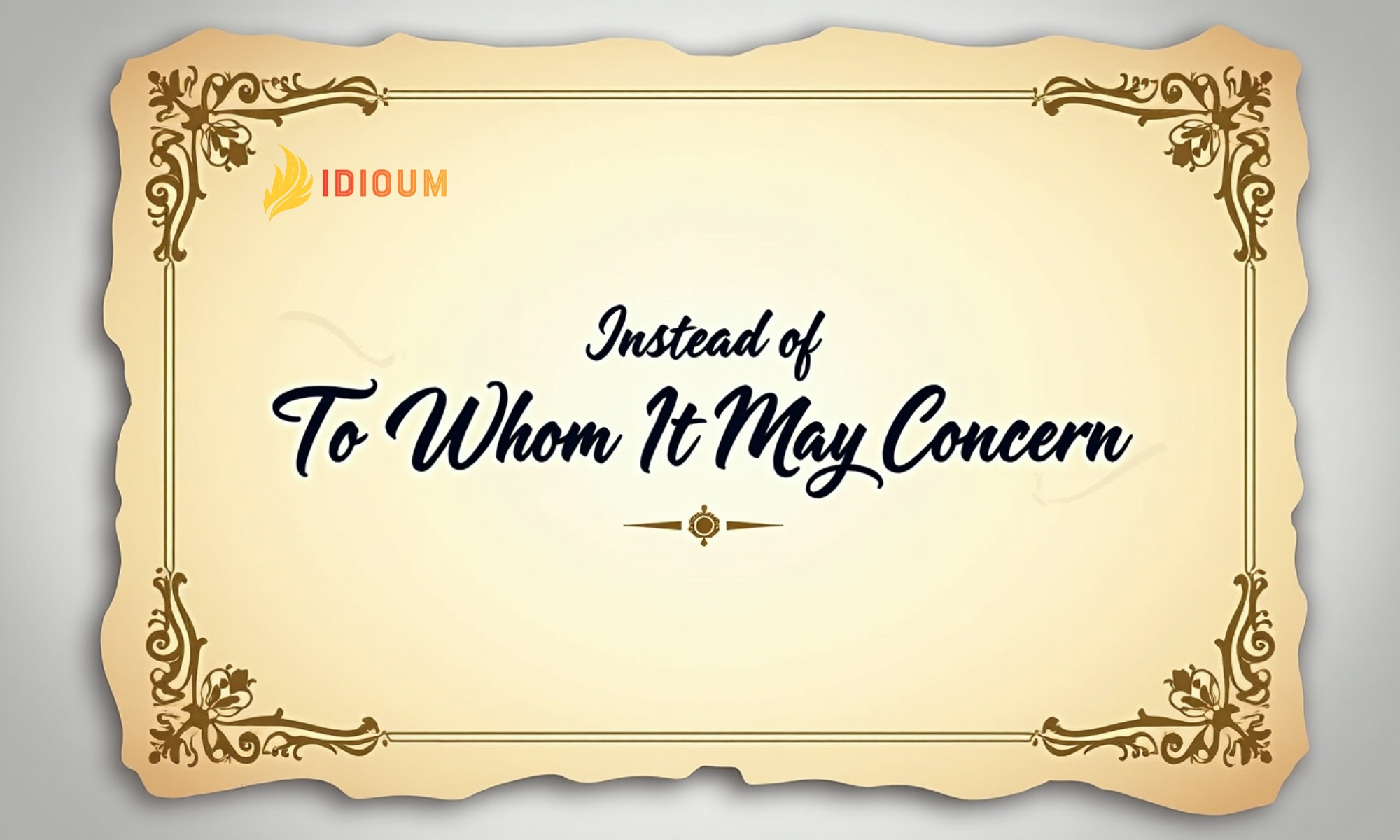You’ve polished your resume. You’ve drafted the perfect email. But when you freeze how do you begin? “To Whom It May Concern” used to be the go-to phrase.
Now, it feels outdated and impersonal. People want to feel seen. When you use the wrong opener, your message might get ignored.
If you’re wondering what to say instead of To Whom It May Concern, you’re not alone. In today’s world, personalization matters more than ever.
A friendly, direct opening can set the tone and make a real connection.
Whether you’re writing a job application, business letter, or cold email, using the right greeting helps you stand out.
Let’s explore better ways to start your message and avoid sounding like a robot. 🤖
Why “To Whom It May Concern” Feels Cold and Outdated?
Once seen as polite and formal, this phrase now feels distant. It tells the reader, “I didn’t take the time to learn who you are.”
In a world full of digital tools and LinkedIn profiles, skipping the effort can come across as lazy.
Real-life scenario:
You apply for a job at a small company. You use “To Whom It May Concern” in your cover letter. The hiring manager thinks, “We’re only 10 people. They couldn’t look up my name?”
Instead, try:
❌ To Whom It May Concern
✅ Dear Hiring Manager at [Company Name]
✅ Hello [Team Name]
These small changes show you care. They build trust from the first line.
Know Your Audience: Addressing the Right Person Matters
When possible, find out the name of the person you’re writing to. It shows respect and attention to detail.
Real-life example:
You’re emailing a marketing team about a collaboration. A quick LinkedIn search reveals the team lead is Sarah Green.
Use:
✅ Dear Sarah Green
✅ Hi Sarah
Avoid:
❌ To Whom It May Concern
❌ Dear Sir or Madam
Tips to find the right name:
🔍 Check the company website
🔍 Search on LinkedIn
🔍 Call the front desk and ask
Using a real name instantly makes your message feel warmer and more human.
Best Alternatives to Use in a Cover Letter or Email
If you can’t find a specific name, that’s okay. You can still sound natural and respectful.
Great options:
✅ Dear Hiring Manager
✅ Hello [Department] Team
✅ Dear [Job Title] Committee
✅ Greetings [Company] Team
Example:
“Dear Customer Support Team, I’m writing to express interest in the open role…”
These greetings are professional but still feel personal.
Avoid:
❌ To Whom It May Concern
❌ Dear Sir or Madam (too old-fashioned)
Use phrases that feel like you’re talking to real people, not a mystery figure.
What to Say When You Truly Don’t Know the Recipient’s Name?
Sometimes, you really don’t know who will read your message. That’s okay! Choose a greeting that feels friendly and open.
Good choices:
✅ Hello
✅ Good day
✅ Dear [Company Name] Team
✅ Greetings
Real-life case:
You’re submitting a proposal through a web form. You don’t know who handles submissions.
Use:
“Hello, I’m reaching out to share an idea for your upcoming campaign…”
Keep it warm. It’s better than being stiff and formal.
Common Mistakes to Avoid When Choosing a Greeting
Even small slip-ups can leave a bad impression. Here are common mistakes and how to fix them:
❌ Using a wrong or misspelled name
Fix: Double-check before sending!
❌ Copy-pasting a generic greeting
Fix: Tailor your message for each recipient.
❌ Using overly formal or outdated phrases
Fix: Keep it modern and simple.
Example:
❌ “Dear Esteemed Sir or Madam”
✅ “Dear [Job Title] Team”
Small tweaks make your message sound more thoughtful and clear.
Professional Yet Friendly Openers That Make a Great First Impression
A great greeting sets a positive tone. Here are examples you can use based on your situation:
Job Application:
✅ “Dear Hiring Team at ABC Corp”
✅ “Hello Marketing Department”
Customer Inquiry:
✅ “Hi Customer Support Team”
✅ “Hello [Company Name]”
General Business Email:
✅ “Dear [Department]”
✅ “Good morning” or “Hello there”
These openers are simple, polite, and personal. They invite the reader in, instead of pushing them away.
Conclusion
You don’t need to sound like a robot when writing a message. If you’ve been wondering what to say instead of To Whom It May Concern, now you’ve got friendly, modern options.
Whether you’re job hunting or reaching out for the first time, using a thoughtful greeting shows you care. And that first impression? It matters more than you think.












